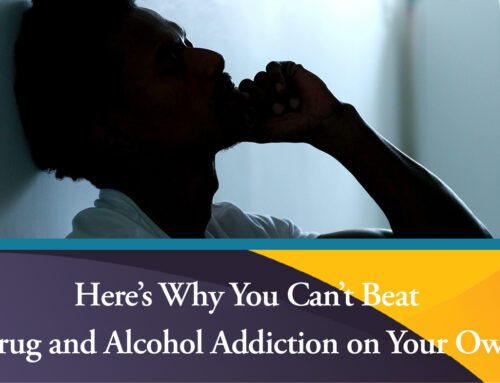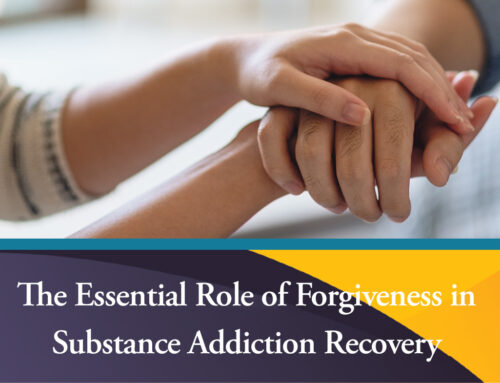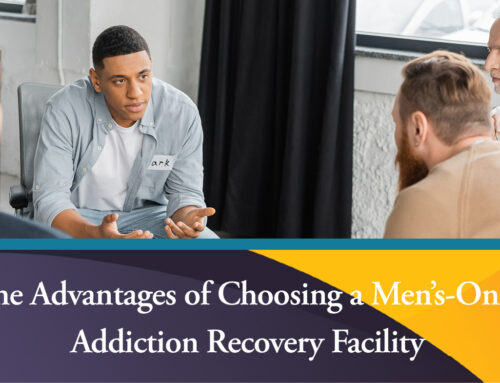Though it may sometimes appear as if someone develops an addiction problem quickly, this isn’t usually the case. When it comes to addiction to alcohol and/or drugs, there are often stages a person goes through as their dependency on the substances grows.
The following are the stages of addiction. This will help you have a better understanding of how an addiction forms and how you can help yourself or a loved one recover.
Stage One – Initial Use
The first stage of addiction begins with initial use or experimentation. For some, experience with drugs and alcohol only goes as far as this first stage. But for others, this is the beginning of a drug and/or alcohol dependency.
Initial use can begin as seemingly benign as getting a prescription to manage pain from a doctor, as culturally typical as trying a first drink at the age of 21, or as insidious as being pressured by friends or family to try illicit drugs. What separates this stage from other stages is that substance use is in a person’s control. They are able to stop using or drinking without being consumed by thoughts of the substance and without experiencing withdrawals.
Stage Two – Abuse
What follows the initial use stage is abuse. This is when a person uses drugs or alcohol too often and in damaging ways. An example of this is if an individual who is taking prescription painkillers decides to take higher doses or use the medication more frequently. Another example is a person who engages in regular binge drinking.
Whether or not a substance is being abused often depends on the substance itself and how it acts on the body. However, when a person uses drugs or alcohol to cope with certain situations or mental or emotional trauma, it could increase the likelihood of that individual escalating further along the stages of addiction.
Stage Three – Tolerance
The third stage is when tolerance develops. When using prescription drugs, alcohol, or abusing other substances for a long time, the chemicals in the brain can change. This eventually can lead to building up a tolerance. This means the original dosage or use of the substance no longer produces the same physical or mental effect. As a result, the person using the substances may increase the dosage or frequency of use to try to recapture the original result. For a while, this might work. Then, over time, tolerance to this new dosage occurs, the person increases again, and the cycle continues.
This cycle can not only increase more reckless and risky behaviors but it can, over time, lead to the next stage of addiction: dependence.
Sage Four – Dependence
At a certain point, the body or brain becomes dependent on having the substance to be able to function properly. The body and brain believe that the substance is essential for survival. When a person doesn’t use the substance, their body will exhibit withdrawal symptoms, such as tremors, headaches, nausea, anxiety, and muscle cramps. At this stage and without intervention, addiction becomes very likely.
Please do note: not all drug dependence is addiction. When a person has a chemical reliance on a drug, they cannot function normally without the substance. This dependency is different than when a person who has a preexisting health condition and relies on a drug to be healthy (like a person with asthma who needs an inhaler prescription). In cases like that, the drug does not cause dysfunction.
Stage Five – Addiction
At this point, a person may feel like life is impossible to deal with without the use of substances. The effects felt in the previous stages will become more severe. A person may lose their job, fail out of school, become isolated from friends and family, or give up their passions or hobbies. They’ll also experience severe physical and mental side effects, depending on the substance they’re using.
At this stage, it can be nearly impossible for a person to quit on their own. They’ll need help from outside sources to take the steps needed to recover.
Cavalry Ranch is Here for You
No matter where you are in the stages of addiction you’re in, it’s important to seek help right away. Addiction is a progressive illness that, if left untreated, only gets worse. Thankfully, addiction is also a treatable illness.
Recovery from drug and alcohol addiction requires effort, time, willpower, and support. And we’re ready to support you or your loved one. Our Christian-based live-in program is here to help you get to the light at the end of the tunnel.
Our Rehab Ranch in Montrose, CO, is a simple place with a simple program. Calvary Ranch Colorado is located on a working cattle ranch surrounded by rivers, lakes, trees, and majestic mountain views. Abundant wildlife also shows God’s creation and adds to the tranquility of this place. Check out our What to Expect information to learn more.






